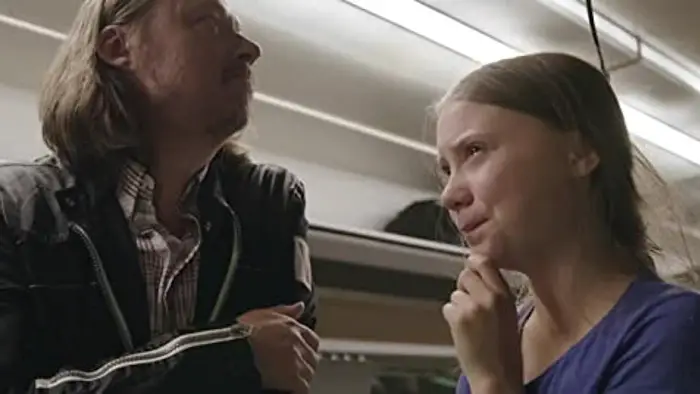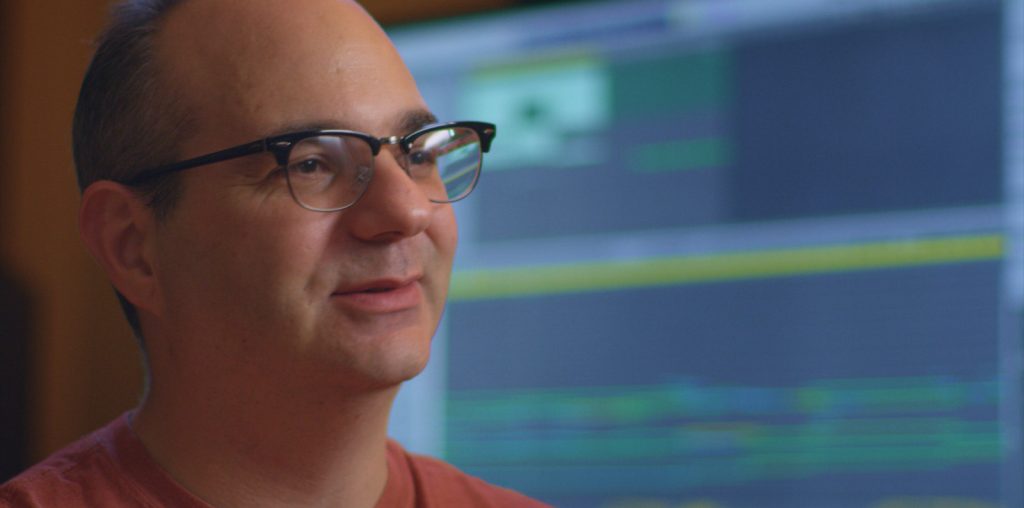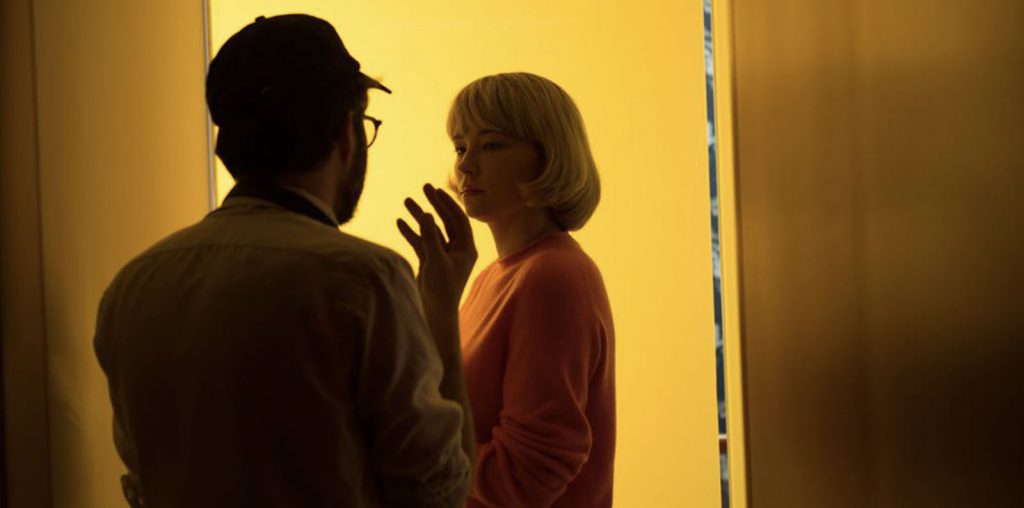
The film scoring is quite solitary. At least initially, it can be very lonely, and it’s weird that not more people work together because it’s so made for that. You can divide up the work because you’re always good at different things. And for example, there’s one of our favorite musical spots in the film about the internet trolls when Greta is attacked on television by conservatives and all these older white men. We had this really long drolly sequence that we love, but it felt like something was lacking. We were like, “Okay, what should they see?” Because in the end, she starts dancing kind of like really carefree to her own internal tune almost, it’s really beautiful. It’s one of the favorites moments in the film.
We didn’t know what we should do here. I just played… My piano is my instrument. I’m trained on the piano, but I’m quite often reluctant to go to the piano because it’s the easiest thing for me to grasp. And Jon has been challenging that. He’s been like, “Come on, it is right with piano.” So he said, “Go in and let’s just try to improvise something.” I went into the piano room, and Jon was in the control room, and I couldn’t see the imagery, but I heard the music, and I just improvised. And then when I stopped, Jon came, opened the door with tears in his eyes and was like, “Okay, you got to come and see what just happened.” And it’s totally married. It was this total marriage… Totally art by accident. I had no idea what I was doing, but I wouldn’t have been able to do that alone. So it’s the synergy, and it’s definitely one of the most magical musical spots in the whole film because of that accident.
Was there another challenge you specifically faced with I Am Greta that you don’t normally experience with other projects?
Karijord: Because of the time pressure, the director…everyone was very nervous. He was extremely nervous. Commonly, everyone gets protective of the music. The music gets an enormous emphasis. They were struggling a lot with the story in the editing. They went through several editors, and it was a tough, tough process to make this film for many people. So that was challenging for us definitely.
I would imagine it’s like putting makeup on a baby.
Ekstrand: Yeah. Everybody’s tipping around their toes. They’re a little bit afraid also, and nobody really wants to decide because it is Greta. And I think that affects the product a little bit, made it a little bit hard work.

“Work your a*s off.”
Karijord: But I think that was something that had to be there also because she is young and she has vulnerable sides, and they wanted to protect her. She’s super strong and super amazing, but she’s vulnerable. On one side, the director was criticized for not going closer… While in Sweden, they say the opposite in the reviews. They’re like, “Wow, how respectful that he didn’t expose her more.” So that’s also a cultural thing. I think Hulu wanted to make one type of film, and maybe the director wanted to make a different type of film. So there’s a lot of players and interests here, and then the music comes in the middle of that, and they’re supposed to solve it emotionally.
What kind of advice would you give to a person who wants to get into the arena of film and television composing? What is something in your experience that you would pass on to them?
Ekstrand: Work your a*s off. I think it’s the only way. You have to work. You have to be so dedicated. You have to sacrifice so, so much. And in a good way because this is a fantastic job. But there is a price, and there is a lot of sacrificing all of that time, all of your holidays, all of your weekends…
Karijord: And sacrifice ego too, because you’re telling someone else’s story. You have to be able to put yourself under the story.
Ekstrand: Find a director to start with. Who’s on the same level as you, that you can grow with. I think that for me, that was my jumping board or how I go. I think it’s about finding the director, the right director for you, forming a relationship, evolving together, and going into projects.
Karijord: Yeah. That’s the best way to get jobs. That’s the only way I’ve gotten jobs is relationships with directors and growing parallel with them. It hardly ever works to contact people you don’t know and say, “I want to–.” It’s an emotional choice for a director of what kind of musician they choose. But I also think to watch a lot of films and read about dramaturgy, educate yourself. But watch a lot of films and get curious about why people are writing the way they are. Get someone that’s more experienced to make you a list of great films with fantastic scores.
Ekstrand: And also find your own voice because there’s probably 100,000 composers out there who know how to orchestrate almost and sound almost like John Williams or Hans Zimmer.
Yeah. There’s only one John Williams, and there should only be one John Williams.
Ekstrand: Yeah, exactly. So why try to sound like him because he’s the best at doing that. Nobody’s going to hire you to do a John Williams score. This is a hard one because this takes many years, it did to me, and you doubt this all the time. But I think as soon as you realize that and really go for your instinct to hit the sound, I think your career is going to go faster and be better. And you’re going to feel better also and not trying to be something you’re not.


